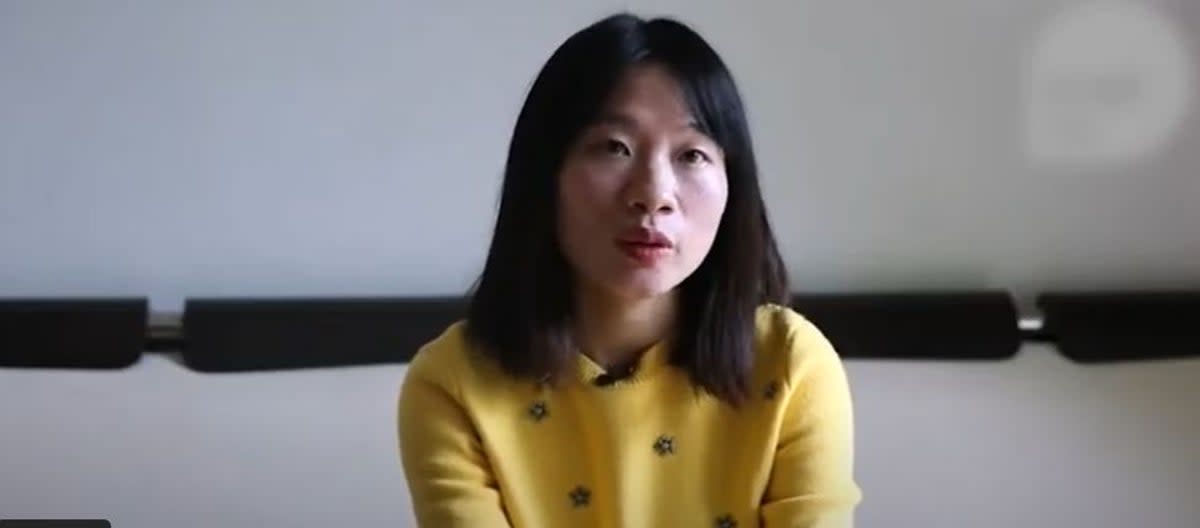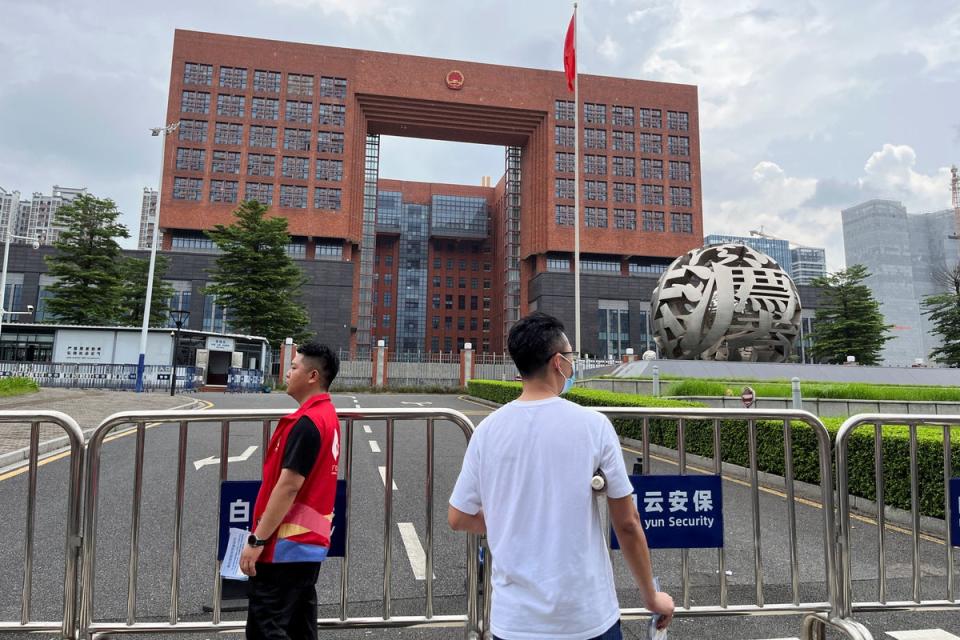China jails MeToo activist Huang Xueqin for five years for ‘subversion of state’

A court in southern China has sentenced MeToo activist Sophia Huang Xueqin to five years in prison after finding her guilty of state subversion.
The 35-year-old journalist was put on trial last year for allegedly “inciting subversion of state power” along with labour activist Wang Jianbing.
Ms Huang plans to appeal her sentence, her supporters said on Friday.
Mr Wang, 40, was sentenced to three years and six months in prison. It was not immediately clear if he would appeal.
"The sentence was longer than we expected," said a spokesperson for the campaign group Free Huang Xueqin and Wang Jianbing.
"I don't think it should have been this severe, and it is completely unnecessary. So we support Huang Xueqin's intention to appeal."
The activists denied any wrongdoing during their trial, which was held behind closed doors at the Guangzhou Intermediate People’s Court.

They were arrested on 19 September 2021, a day before Ms Huang was due to leave for the UK to begin her master’s programme at the University of Sussex on a scholarship funded by the British government.
The activists have been held mostly incommunicado, denied access to family members or lawyers.
The charges of subversion against them stemmed from the gatherings they often held for Chinese youth where they discussed social issues.
"Their efforts and dedication to labour, women's rights and the broader civil society won't be negated by this unjust trial, nor will society forget their contributions," the campaign group, made up mainly of activists based overseas, said in a statement before the verdict was handed down.
“On the contrary, as oppression persists and injustice grows, more activists like them will continue to rise.”
"Inciting subversion of state power" is a charge frequently used by the Chinese government against dissidents and carries a maximum sentence of five years in jail and longer if the suspect is considered a “ringleader”.
Ms Huang was a prominent voice in China's MeToo movement in 2018 and led the discourse by helping a graduate student go public with accusations against her PhD supervisor.
The movement flourished briefly before it was shut down by the ruling Communist Party, which sees civil movements as potential threat against the government.
She was previously arrested in 2019 following her coverage of the street protests in Hong Kong.
“These convictions will prolong their deeply unjust detention and have a further chilling effect on human rights and social advocacy in a country where activists face increasing state crackdowns," said Amnesty International China director Sarah Brooks.
“MeToo activism has empowered survivors of sexual violence around the world, but in this case the Chinese authorities have sought to do the exact opposite by stamping it out,” she said in a statement.
“These malicious and totally groundless convictions show just how terrified the Chinese government is of the emerging wave of activists who dare to speak out to protect the rights of others."


